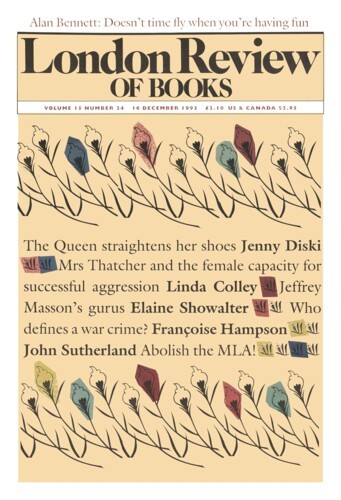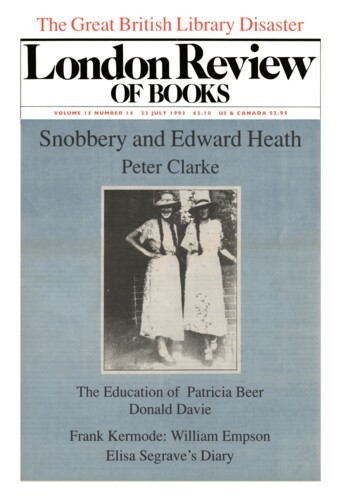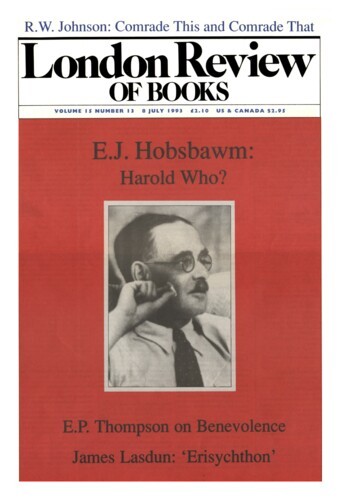The Annual MLA Disaster
John Sutherland, 16 December 1993
At the 1992 MLA convention in New York there were some 12,000 registered and paid-up members in attendance. It is, one is told, the largest function of its kind in North America – and gatherings of professors don’t come bigger elsewhere. Certainly not in Britain, where the MLA’s anaemic cousin, UTE (the University Teachers of English conference), counts itself lucky to get attendance in three figures. The MLA, with a current enrolment of 31,500, was not always as big. Just 40 people came to the first convention in 1883, out of a total membership of 126. Attendance progressively increased, from one thousand in 1930 to five thousand in 1959. Then, with the explosion of higher education, it leapt to 12,300 in 1966, at which level it has stabilised, although there will be a few less this year at Toronto – an oddly colonial choice of location for a national rally.’




